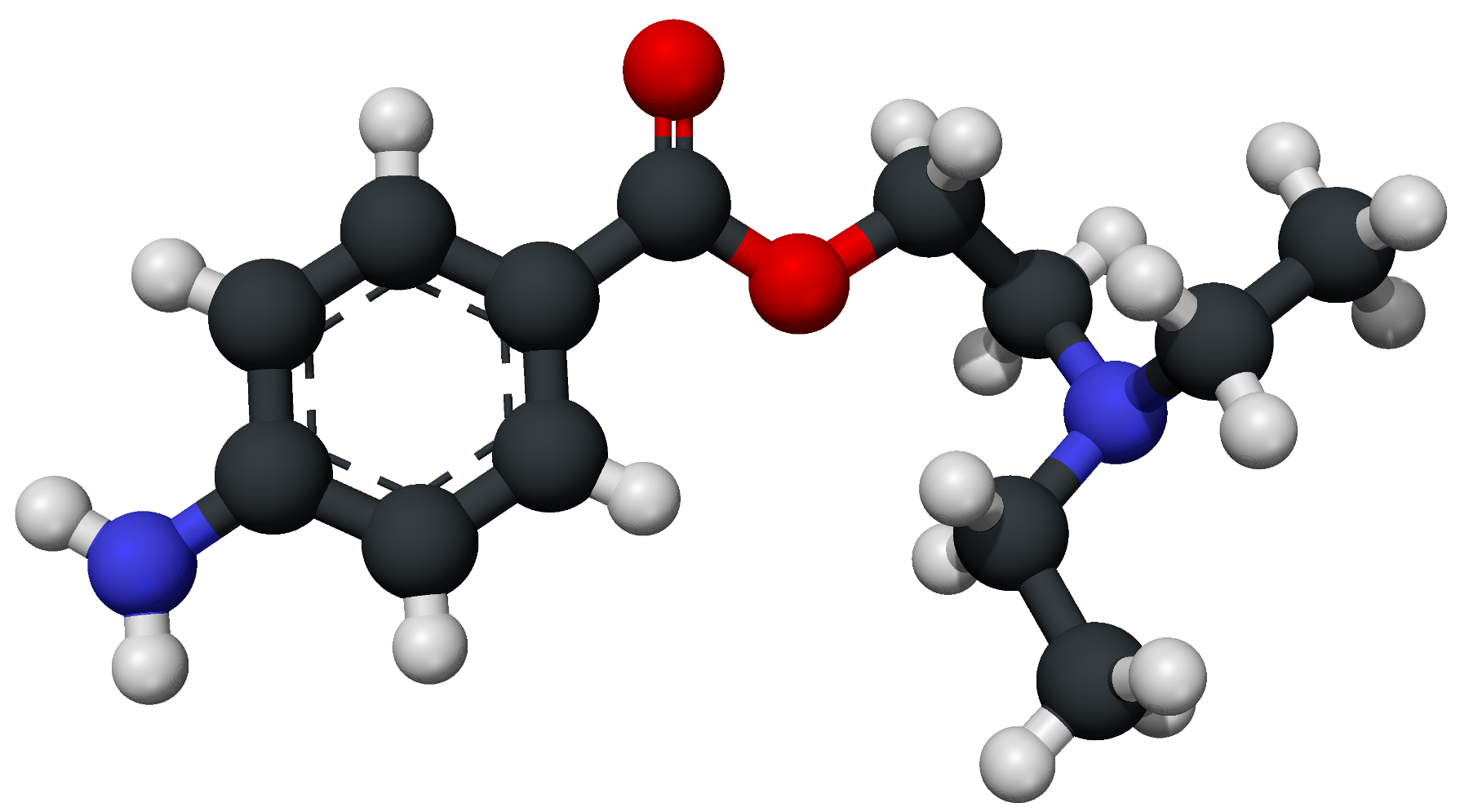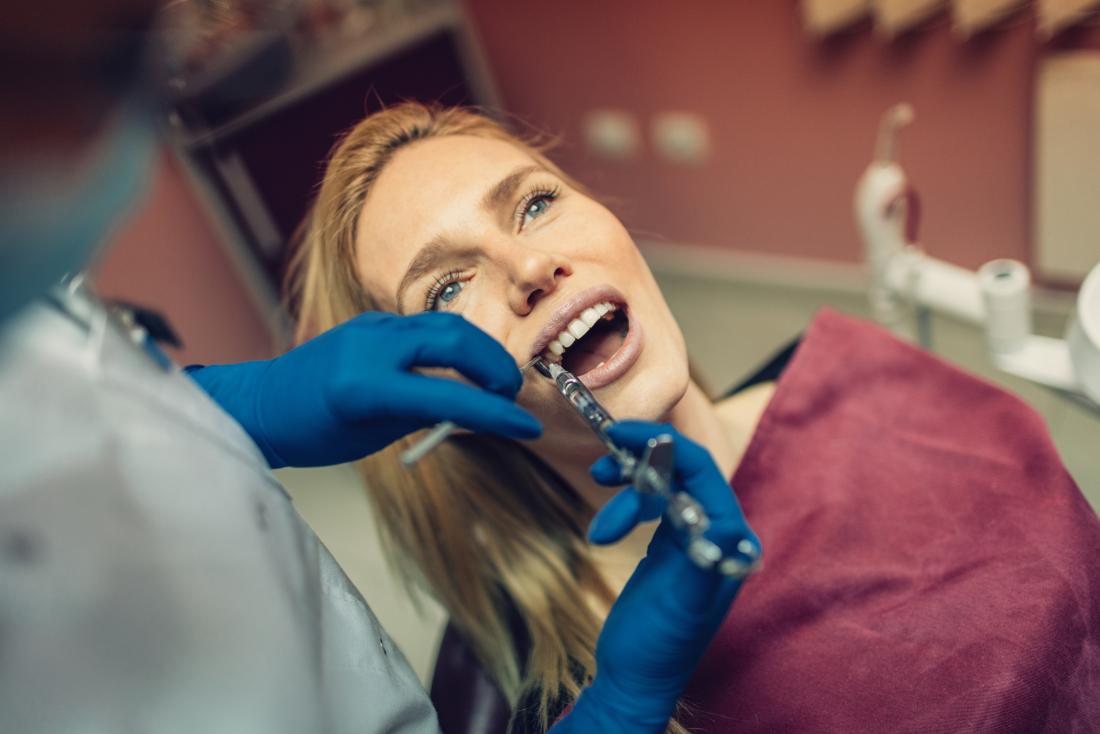Anyone who has had an involved dental procedure has probably had a local anaesthetic. The most common of these is novocaine. Because dentists use novocaine so often, dental patients have a lot of questions about the drug and its use. It’s about time patients had their own easy-to-follow guide to novocaine.
What is Novocaine, Exactly?
Novocaine is a local anaesthetic, which means it helps to dull pain in a small area. (This is different from a general anaesthetic, which knocks you out entirely.) It is a more popular name for procaine (see below). In dentistry, novocaine is used to numb an area before getting a filling, crown, or root canal.
Novocain vs. Novocaine: Is There a Difference?
Many people want to know how to spell novocaine, but then quickly discover that it is spelled two different ways: novocaine vs. novocain. Which is correct?
Both the words “novocaine” and “novocain” can be found in the dictionary. The drug itself is known as procaine. “Novocain” is the trade name for a particular brand of procaine. (Just like Nike is a particular brand of athletic sneakers.)
The term “novocaine” has become the more everyday term for the general drug, however. (This happens with popular brands—for example, when we use the term “Kleenex” to mean facial tissue, or “Coke” to mean soda/pop more generally.) Technically, the most used local anaesthetic today in linocaine, which is similar but different from brand name Novocain. But most people, and so most dentists, used the general terms “novocaine” for all of these pain killers.
So, if you want to write about this type of local anaesthetic generally, it is spelled NOVOCAINE.
If you want to write about the specific brand, it is spelled NOVOCAIN.
What is Novocaine Used For?
In dentistry, novocaine is used for numbing an area of the mouth that might experience some pain during a procedure—the most common example would be when you get a filling done. Novocaine is also sometimes used for crowns and root canals.
One of the nice things about novocaine is that it is not habit forming, so there is minimal chance of addiction or abuse. It also wears off quickly, compared to other anaesthetics.
How Does Novocaine Work?

The details about how novocaine works would take several pages and a degree in chemistry to understand fully (though you can find those details online, if curious). In rough outline, novocaine is a sodium channel blocker. Sodium channels exist in your nerve cells and play an important part in their ability to send signals to and from the brain. When these sodium channels are blocked, they cannot send those signals.
So, when novocaine or another sodium blocker hits the nerve cells responsible for pain, those nerves no longer send a signal (or they send a weakened signal) to the brain. This means you do not register the pain that would otherwise be felt.
In order for novocaine to do all of this, it must be administered close to the nerves that could register pain. This is usually done by injecting small amounts at the spot where pain is most likely—for example, where a dentist is going to drill or cut.
How Long Does it Take for Novocaine to Wear Off?
Novocaine gets to work quickly and also wears off relatively quickly. The effects of novocaine by itself usually last about an hour.
That said, some dental procedures take more than an hour, and so dentists have found ways to make novocaine last longer. For example, novocaine with epinephrine can last 90 minutes to two hours. Some of the more long-lasting novocaine preparations can keep you feeling numb for half a day.
Exact timing depends a lot on dosage and personal body chemistry, too. A larger dose will take longer to clear your system, and a small dose will clear quickly. Some people are particularly resistant to novocaine and will feel the effects wear off sooner rather than later, and for others, the opposite is true.
If your dentist has figured out your dose correctly, the effect should stay for as long as you have your procedure, and then wear off an hour or two after you leave the dentist’s office.
Is it Possible to Be Allergic to Novocaine?
Yes, it is possible to be allergic to novocaine. It is extremely rare, occurring in fewer than 1% of all cases. But it does happen.
Common indications of an allergic reaction to novocaine include:
- Excessive swelling, both at the area of injection and elsewhere
- Itchiness
- Hives
- Difficulty breathing
- Fast or irregular heartbeat
- Anxiety or panic
- Signs of anaphylaxis (rapid or weak pulse, nausea, closed airway)
If you feel these symptoms of novocaine allergy coming on, tell your dentist immediately.
Is it OK to Have Novocaine When Pregnant? Breastfeeding?

Novocaine is safe while you are pregnant or breastfeeding. In fact, a 2015 study in the Journal of the American Dental Association found that most local anaesthetics, including novocaine and lidocaine, had no effect in terms of miscarriages, birth defects, premature delivery, or birth weight of a baby.
That said, it is important to 1) tell your dentist if you are pregnant or breastfeeding, and 2) discuss with your dentist which exact anaesthetic will be used. While many anaesthetics have been shown to be safe, others, such as bupivacaine and mepivacaine, should be avoided. Know which is being used before your dentist begins work.
Are There Other Conditions That Make Novocaine Dangerous?
Potentially. If your dentist is going to do a procedure using an anaesthetic, you should mention if you have any of the following conditions:
- Heart disease
- Tachycardia or any kind of irregular heartbeat
- Clotting problems
- Liver problems
- Any sort of neuromuscular disease
- Anxiety
What Are Common Novocaine Side Effects?
As with any drug, there are usually side effects that occur. Many of these depend on your individual body chemistry, which means you might feel none, some, or all of these side effects, and to varying degrees:
- Swelling or puffiness at the area or injection
- Difficulty speaking or chewing until the drug wears off
- Whiteness or paleness at the area of injection (“blanching”)
- Allergic reaction
- Drop in blood pressure
- Muscle tension
- Irregular heartbeat
- Dizziness
A few specific questions about novocaine side effects that are fairly common include:
Can novocaine cause diarrhea? No. There is no evidence novocaine causes diarrhea, and it’s not clear what the mechanism would even be. Reports that it does cause diarrhea are usually from cases where another anaesthetic, like Septocaine, was actually used instead.
Can novocaine make you high? Some people report a more pleasant feeling while novocaine is working. But this might just be curiosity about the sensation, or relief that pain is not present. Novocaine is not habit forming and, in all honesty, pretty boring.
Can novocaine make you tired? Novocaine will not make you feel sleepy. However, it does numb tissue, so many patients report feeling sluggish, as if they were tired or a little drunk.
Can novocaine cause headaches? It can, but usually not at the doses and locations used in dentistry. It could be that reports of headaches are not caused by novocaine directly, but by other side effects, such as tension or drop in blood pressure.
Can novocaine cause swelling? Yes, some swelling in the local area is quite common with novocaine. Usually, this can be ignored and will go away in a few hours. However, if it also comes with itchiness, hives, difficulty breathing, or swelling at other locations on your body, these are signs of an allergic reaction. You should let your dentist know about these immediately.
Can novocaine cause vertigo? Dizziness? It’s rare, but there have been reports of dizziness and vertigo with novocaine.
Can novocaine cause sinus problems? No. Novocaine has no long-lasting effects on sinuses, though it can cause issues with breathing if you have an allergic reaction.
Can novocaine cause migraines? The various triggers for migraines are still not well understood, and so we cannot rule out novocaine being one of them. It could be that novocaine does not trigger migraines by itself, but it does make some people clench their jaw, which could trigger a migraine. An allergic reaction to novocaine could trigger a migraine, too.
Can novocaine raise blood pressure? Typically, no. If anything, novocaine tends to lower blood pressure, especially in patients with hypertension. This seems to happen in cases where novocaine is combined with epinephrine to make the effects last longer.
Can novocaine upset your stomach? Novocaine is usually applied directly to the soft tissue of the mouth, not ingested, so there is little chance it will cause an upset stomach. An allergic reaction to novocaine can come with some nausea, so be on the lookout for other signs of allergy if you do get an upset stomach.
Can I Buy Novocaine? Where?
Because of the side effects, the potential for allergic reaction, and the harmful effects that can occur with an overdose, novocaine can and should be administered only by a medical professional. In other words: Leave the handling of novocaine to your dentist.
In fact, novocaine is usually sold only to licensed dental and medical professionals. Some websites might advertise novocaine for sale to the general public. But know that, as of this writing, selling novocaine to unlicensed people is illegal.
If you are looking to buy novocaine for a reason you think is legitimate—for example, as a local anaesthetic for an emergency field kit—talk to a doctor. There might be some alternatives available.


